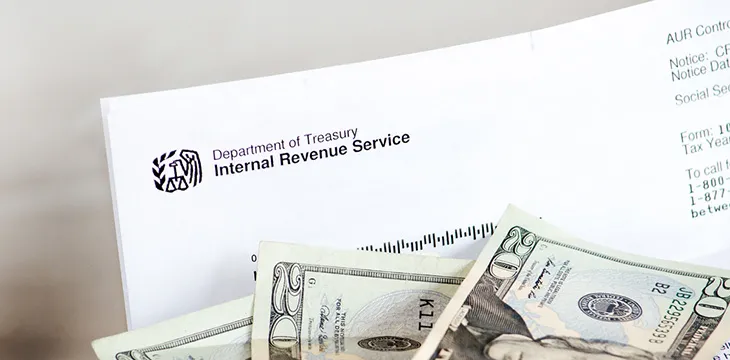|
Getting your Trinity Audio player ready...
|
The U.S. Internal Revenue Service (IRS) is expanding its digital assets tax bracket to include non-fungible tokens (NFTs) and stablecoins.
A draft published by the tax agency for its 2022 instructions changed the category from “virtual currency” to “digital assets.” With the title change comes a new definition of the category and an expansion of the scope of taxation for American taxpayers.
“Digital assets are any digital representations of value that are recorded on a cryptographically secured distributed ledger or any similar technology. For example, digital assets include non-fungible tokens (NFT) and virtual currencies, such as cryptocurrencies and stablecoins,” the draft read.
Previously, the IRS has only focused on digital currencies. Under the category “virtual currency,” the agency used to define them as “digital tokens that function as a unit of account, a store of value or a medium of exchange.”
Taxpayers will now be required to pay taxes on digital assets if they have used virtual currencies as payments or as capital assets. This will include any American who made any payment for a good using a digital currency, received a digital asset as a reward, traded digital assets in exchange for fiat or other digital assets, or acquired new digital assets through block reward mining or staking.
The kind of tax paid will depend on how taxpayers have used their digital assets throughout the year. They can either be classed under capital gains or income sections; the former will be for those who held them as assets, while the latter will be for those who received payment in digital assets or sold them to other clients.
The update comes as the IRS steps up its pursuit of digital asset taxes. Last month, the agency obtained an order from a New York judge to issue summons requiring M.Y. Safra Bank to produce information on U.S. taxpayers who had understated or failed to pay their digital asset taxes.
“The government’s ability to obtain third-party information on those failing to report their gains from digital assets remains a critical tool in catching tax cheats. Taxpayers earning income from digital asset transactions need to come into compliance with their filing and reporting responsibilities,” IRS Commissioner Charles Rettig commented at the time.
Watch: The BSV Global Blockchain Convention panel, Blockchain for Government Data & Applications

 07-18-2025
07-18-2025 





